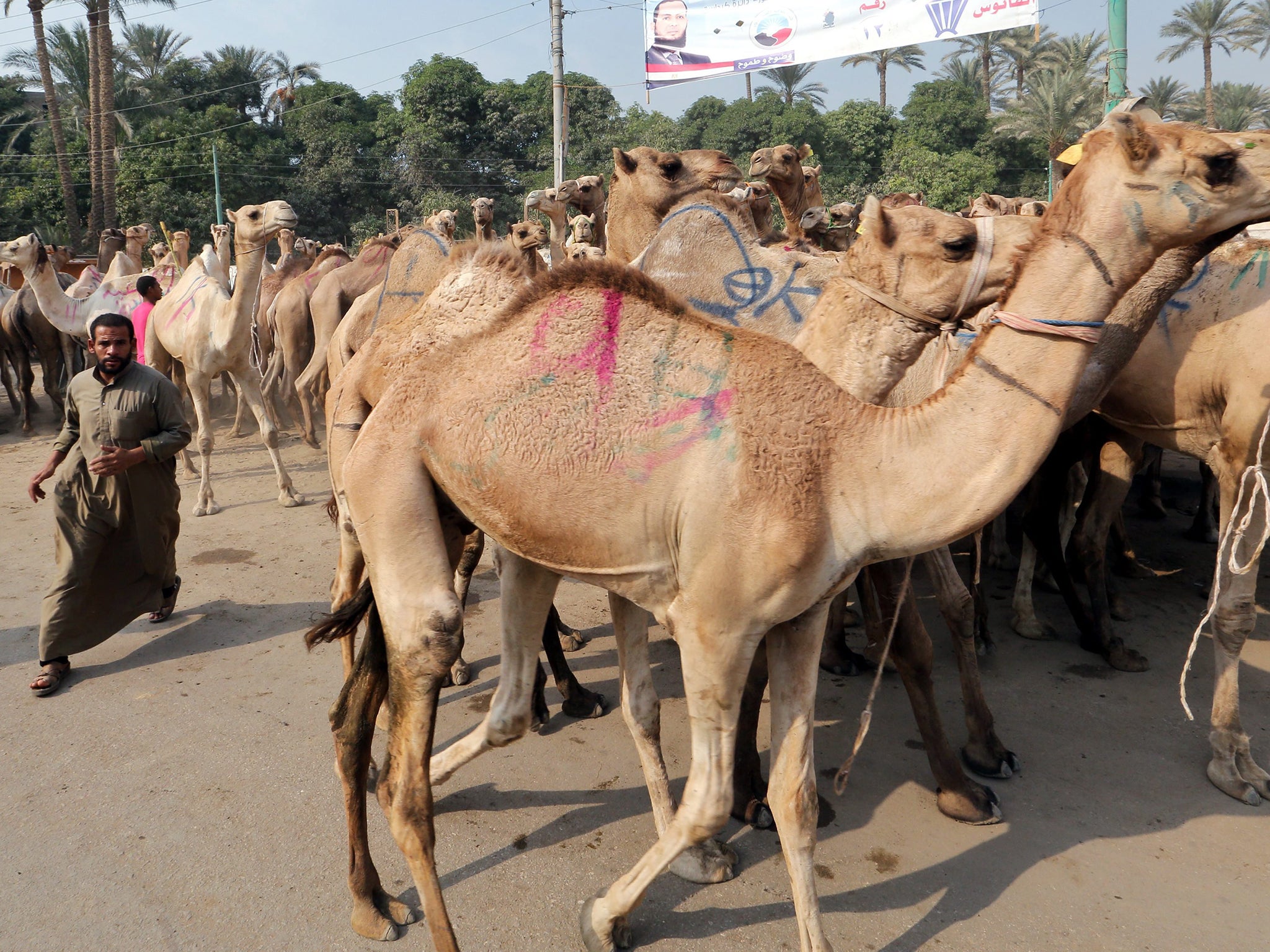Mers vaccine proves to be effective in camels
Dromedary camels are considered to be the primary hosts for the virus

Your support helps us to tell the story
From reproductive rights to climate change to Big Tech, The Independent is on the ground when the story is developing. Whether it's investigating the financials of Elon Musk's pro-Trump PAC or producing our latest documentary, 'The A Word', which shines a light on the American women fighting for reproductive rights, we know how important it is to parse out the facts from the messaging.
At such a critical moment in US history, we need reporters on the ground. Your donation allows us to keep sending journalists to speak to both sides of the story.
The Independent is trusted by Americans across the entire political spectrum. And unlike many other quality news outlets, we choose not to lock Americans out of our reporting and analysis with paywalls. We believe quality journalism should be available to everyone, paid for by those who can afford it.
Your support makes all the difference.A vaccine that could potentially protect against the virus that causes Middle East respiratory syndrome (Mers) has proven to be effective in camels, according to a report in the journal Science.
The vaccine, which was developed by German scientists, targets the animals who are considered to be the primary host of the virus.
It does not completely stop the camels from becoming infected but does dramatically reduce the amount of the virus found in the animal.
Dromedary camels, which are bred and raised for their milk, meat and racing, are thought to be the initial source of human outbreaks.
Humans catch the disease by coming in contact with infected camels, said the study in the journal Science.
Experts hope the vaccine will stop the virus spreading in camels and in turn protect humans.
The virus can cause respiratory infections and symptoms include a fever, cough and breathing difficulties. It is also known to cause pneumonia and kidney failure.
There have been more than 1,600 cases of Mers in 26 countries since the disease emerged in 2012, according to the World Health Organisation.
There are no treatments for Mers and the disease has claimed almost 600 lives so far.
Join our commenting forum
Join thought-provoking conversations, follow other Independent readers and see their replies
Comments